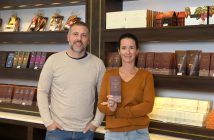With less than a year of existence, Baiani won the Silver and Bronze awards of the Academy of Chocolate, London, in 2018
The story of Juliana and Tuta Aquino is confused with the history of cocoa plantations in southern Bahia. Going back a few generations, we have Firmino Alves, from Sergipe, in the middle of the nineteenth century, attracted by an incentive proposal for cacao farming, who migrated to Bahia and found the city of Itabuna. But he was not alone: he invited several friends from the smallest state of Brazil to help him in the new venture. Among them was Ramiro Aquino. The initiative was so prosperous that the region lived moments of great financial splendor, becoming, as a matter of fact, the most important economic activity of the state, thanks to the cacao.
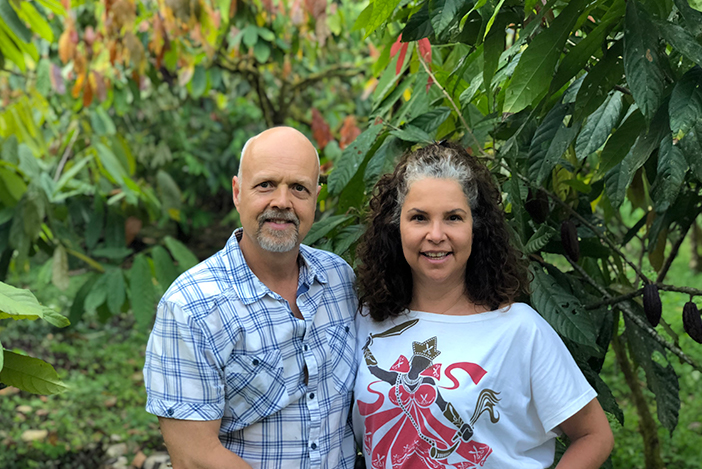
Juliana e Tuta Aquino
In the twentieth century, the great Bahian writer, Jorge Amado, also a son of a cocoa producer, eternalized in his book, “Cacau”, written in 1934, the crudeness of the harsh living conditions of rural workers in southern Bahia, and pointed the “colonels”, farm owners, as the great responsible for that. Cacau inaugurates one of Jorge Amado’s richest books, the books dedicated to the class struggle between the colonels and the cacao region workers, immortalized in works such as Terras do mar endless, São Jorge dos Ilhéus, Gabriela, cravo e canela and Tocaia Grande (insert that as caption for the photos of Jorge Amado and his books that I will send).
It turns out that Firmino was Great Grandfather-Uncle of Juliana and Ramiro, the great-grandfather of Tuta. As the families were very close, they spent their childhood playing, sometimes on one’s farm, sometimes on the other’s.
Tuta and Juliana grew up, fell in love, distanced themselves completely from cocoa, went to live in the US, he as a music producer and she as a singer (and a real good one) of Bossa Nova.
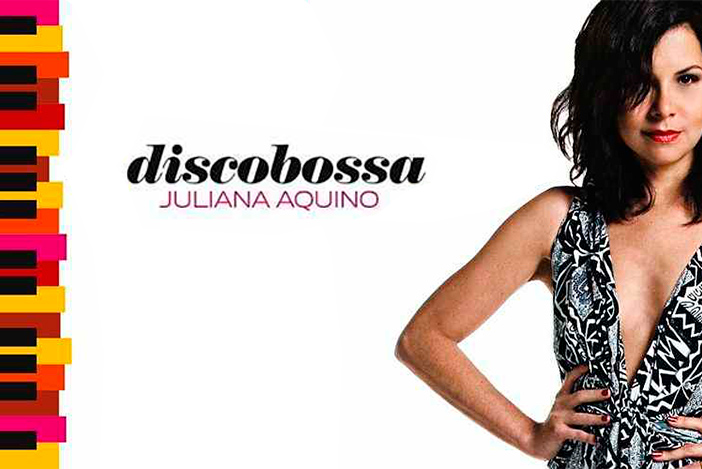
In the US, Juliana consolidated her career as a Bossa Nova singer, started in Brazil, recording two albums, Discobossa and 2xBossa. Despite having given up her musical career, she has more than two million plays in Spotify, more than 40,000 copies sold in physical CD and digital music on iTunes. Tuta Aquino has always worked as her producer.
The Witch’s Broom
Meanwhile, around here, Juliana’s father decided to expand his businesses and bought a farm, Santa Rita, in 1973. Brazil was the third largest cocoa producer in the world and everything was going well until, in the early 1990’s, the witch’s broom plague decimated the cacao of Bahia. More than 200,000 people were affected directly and the population was forced to migrate to other locations and change activity.
Moreover, an extremely important part of the state’s Atlantic Forest was also burned to prevent the propagation of the witch’s broom.
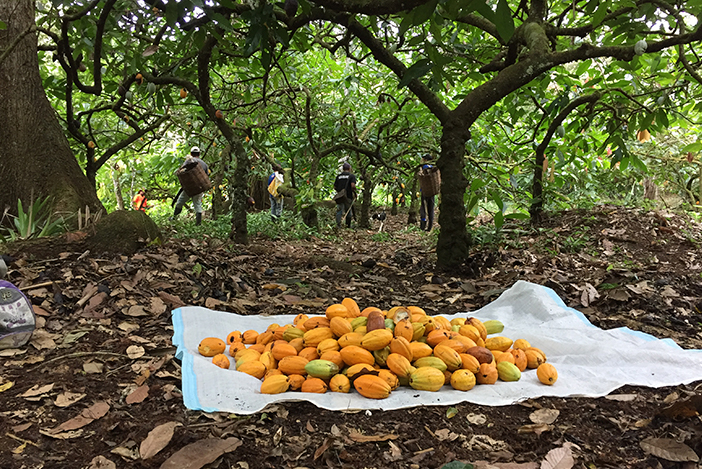
Cacau – Baianí
The Santa Rita farm was totally abandoned until 2013, when the couple now back to Brazil, decided that it would try to recover it, despite a debt of US$ 300 thousand, contracted with the banks, and that still awaits a solution thanks to a joint lawsuit that several farmers affected by the witch’s broom filed against the government. “A cousin warned us that many children and grandchildren of previous generations were returning to the old abandoned properties after the crisis, and resuming the plantations, thanks to the possibility of investing in fine, specialty cocoa to meet the growing Bean to bar market, which was already being developed in the USA,” says Juliana.
Potumuju Valley
They renamed the property as Potumuju Valley www.valepotumuju.com, began to recover the land and hired an experienced agronomist, and nine people to work on 110 hectares of cocoa. “The witch’s broom continues on the crops. Every year, we lose up to 40% of what we harvest,” says Tuta. They also hired the consultant and former researcher at the University of Hawaii at Manoa, Dan O’Doherty, whose work is recognized worldwide. Dan has been helping cocoa growers to improve the productivity of their plantations, as well as the fermentation processes of cocoa beans and drying.
“We want the Potumuju Valley to be known as the best source of cocoa in Brazil,” they say. And the idea is to supply the growing domestic market for Bean to bar and to export as well. “We believe that due to all the care in planting, harvesting and post-harvesting, finally in 2019 we will have a first good result,” says Tuta.
A proof of this is the declared interest by the partner and cocoa hunter from Dandelion (the most reputable manufacturer of bean to bar chocolates in the US), Greg D’Alesandre. “I’ve known Greg since 2016 and we’ve always been focused on selling our cocoa to them. It was him who advised us to buy a simple equipment for Juliana to make the chocolate to improve our cocoa. And then, Juliana fell in love with the work and became a chocolate maker,” says Tuta.
If all goes well in the second half of 2019, Dandelion will receive 500 kg of cocoa from the Potumuju Valley and produce a limited edition of Bean to bar of Brazilian origin for the first time in the company’s history
Baianí
In April/May of that year, the couple created the brand Baianí and started selling their Tree to bar chocolate, an extension of the Bean to bar concept. “This is when the chocolate producer is also the cocoa producer, explains Juliana, the chocolate maker, trained in gastronomy. Juliana says that she has been developing the recipes since December 2016, with roasting protocols, grinding, maturation and tempering times.
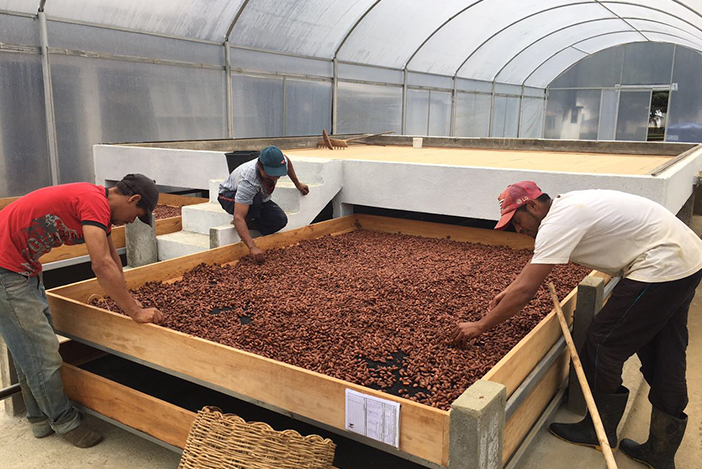
Lavoura de cacau – Baianí
Out of her hands came five bars: the 70% Trinitarian, bold rooster, Terroir Paiol, Potumuju Valley, silver winner, at the Academy of Chocolate in London, 2018. www.academyofchocolate.org.uk. This bar is made only with cocoa, sugar and 1% cocoa butter. Its recipe values the notes of blackberry, citrus and banana; the Trinitarian 70% Orange Shavings, winner of the Bronze at the Academy of Chocolate Awards 2018.
It includes the raspberries of the orange peel in the chocolate mass; 70% Pará – Parazinho, a variety from a single origin.
It contains only cocoa, sugar and 1% cocoa butter. It is available and formulated only with cocoa from the 2016 crop, which was then aged for a year to soften and harmonize its original flavors. The notes range from red fruits such as raspberry to jaboticaba and blueberry; 57% Trinitarian milk, with the addition of only 7% milk, 29% sugar, 57% cocoa, 7% cocoa butter extracted at the factory. It has sweet notes like caramel, hazelnut and honey; and finally the trinitarian 70%, subtle toast, with cocoa, sugar and 1% cocoa butter. With a light roasting, it brings the values of the cocoa blend of the Potumuju Valley to the chocolate.
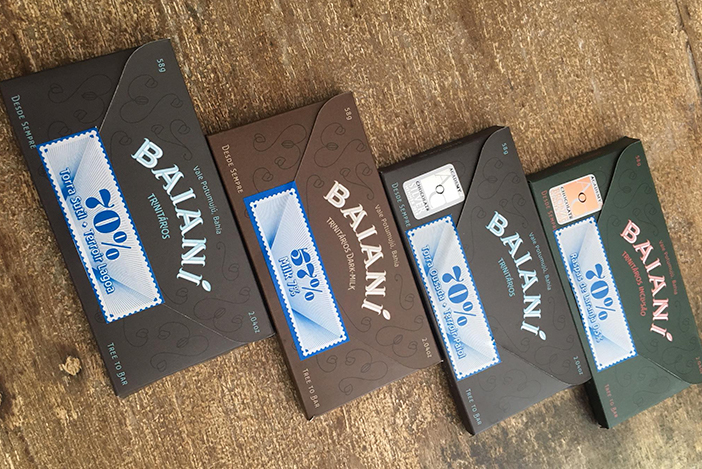
Chocolates da Baianí
Where to buy
The Baianí chocolates, www.baiani.com.br for now, are available at the following addresses:
Amma – Casa do Sabor – www.ammachocolate.com.br
Casa Bonometti – www.casabonometti.com.br
Mr. Baker – www.mrbaker.com.br
Origens Chocolateria – +55 (13) 99687-8693
Cacau Tasters – www.cacautasters.com.br
Prova Lá – www.provala.com.br
USA
Monsieur Marcel – www.monsieurmarcel.com
Volta Coffee, Tea and Chocolate – www.voltacoffee.com
The Meadow – www.themeadow.com
Bar & Cocoa – www.barandcocoa.com
Fotos e vídeos: Clodoir de Oliveira


